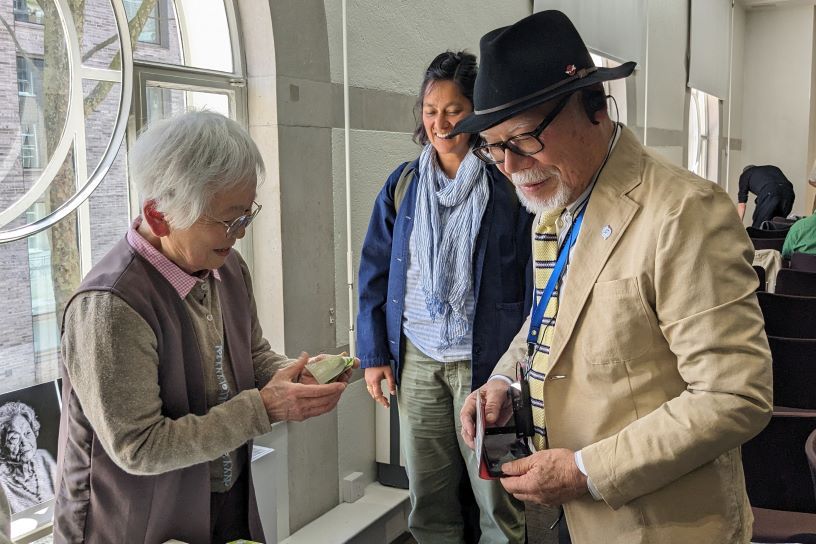Nobel Peace Prize awarded to Japanese atomic bomb survivors
Quakers in Britain welcomes the awarding of the Nobel Peace Prize to friends and partners Nihon Hidankyo, a Japanese group of atomic bomb survivors.

This prize is a reminder that the world is closer than ever before to nuclear apocalypse, Quakers, who were awarded the prize in 1947 for their work during and after the two world wars, said.
The bombing of Hiroshima and Nagasaki on 6 and 9 August 1945, killed between 129,000 and 226,000 people (most of them civilians).
[QUOTE-START]
The continued presence of nuclear weapons in any nation poses an existential threat to us all.
- Paul Parker
[QUOTE-END]
Many more were left dealing with radioactive fallout and emotional wounds.
Hibakusha, as survivors of the bombings are known, were recognised by the Norwegian Nobel Committee for efforts to rid the world of nuclear weapons.
Nobel Committee Chair Joergen Watne Frydnes praised their use of witness testimony in working to ensure nuclear weapons are never used again.
In June, two hibakusha, Toshiko Tanaka and Tadayoshi Ogawa, used an event hosted by Quakers in Britain at their central offices in London to call for a nuclear free world.
The hibakusha, with an average age of 85 years old, are the last generation able to share the experience of a nuclear weapons strike.
In 2024, the Doomsday Clock, started in 1947 by the Bulletin of the Atomic Scientists, stands at 90 seconds to midnight, the closest it has ever been to global – mostly nuclear - apocalypse.
Widespread and growing reliance on nuclear weapons, huge sums being spent on nuclear arsenals, and Russian threats to use nuclear weapons against Ukraine were all cited by scientists in moving the clock closer to midnight.
Concerns are also rising around China's rapid expansion of its nuclear weapons capability.
After decades of a small nuclear deterrent China now has 500 nuclear weapons with plans to reach 1,000 by the end of the decade.
Paul Parker, recording clerk of Quakers in Britain, said: “Our friends, the hibakusha, have spent a lifetime working to protect others from the horror they experienced in Nagasaki and Hiroshima.
“But peace is so fragile in these dark times. And the continued presence of nuclear weapons in any nation poses an existential threat to us all.
“We urge all governments, all policymakers, all international bodies, to renew their efforts to rid the world of them."